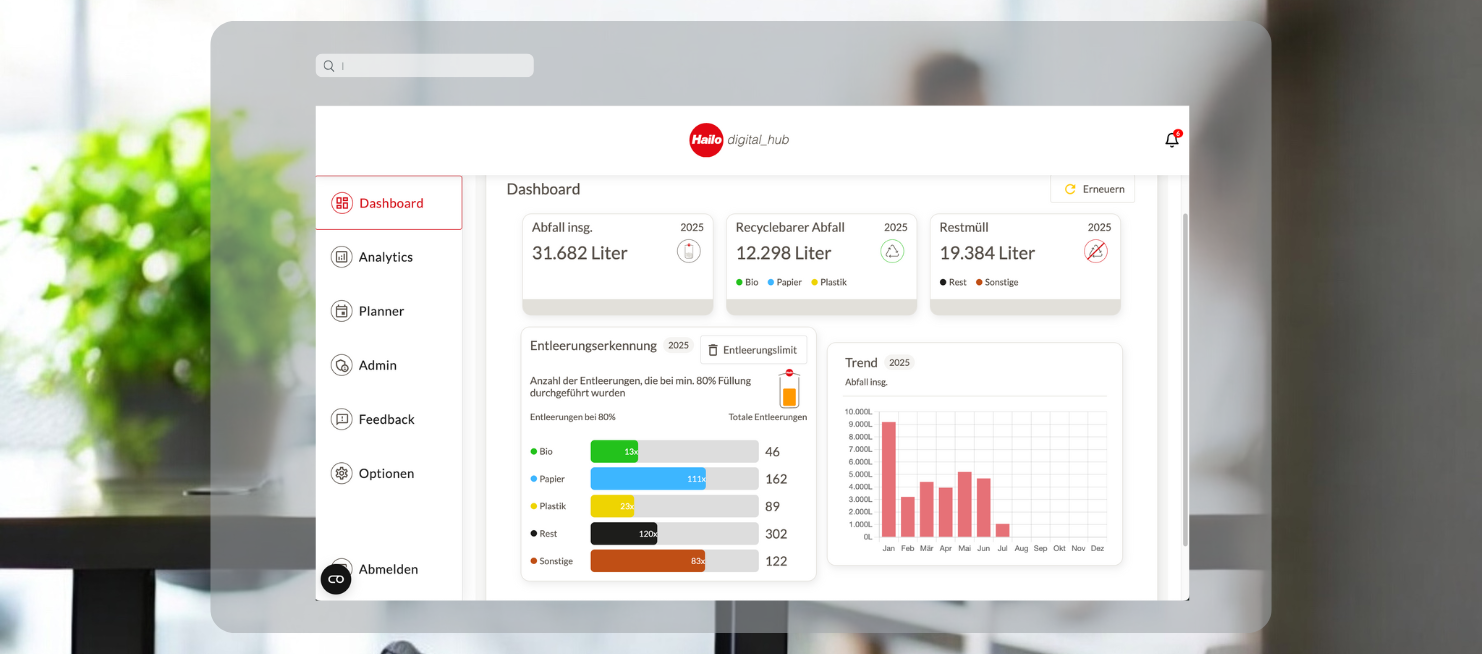Waste as a Data Source – How Smart Waste Solutions Support Strategic Decisions in Facility Management

In facility management, data has become the new currency. While energy use and room occupancy have been analyzed for years, one area is still overlooked: waste collection. Yet this is precisely where enormous potential lies. Smart waste management systems not only provide operational advantages but also share valuable insights that can influence strategic decisions in building management.
Every waste bin is a source of data. Sensors track fill levels, emptying cycles, waste types, and usage patterns. These insights can be visualized in real time through a digital dashboard, showing exactly where and when most waste is produced, for instance in busy areas like entrances, cafeterias, or meeting zones. For facility managers, this data is gold: it enables demand-driven planning, optimized routes, and fact-based resource allocation.
Things become particularly interesting when data is considered in a broader context:
- Cost optimization: By analyzing emptying intervals, staff hours and consumable materials can be precisely reduced.
- Benchmarking: Sites or buildings can be compared based on their waste indicators to identify best practices.
- Sustainability: Evaluating waste quantities and types reveals where recycling potential or reduction strategies are effective.
- Long-term planning: Historical data provides solid foundations for investment decisions or ESG strategies.
A practical example illustrates the added value: In a large office complex, waste bin fill-level data was collected over several months. The analysis revealed that waste bins in certain areas regularly overflowed during peak times, while others were barely used. By redistributing bins and introducing flexible collection routes, emptying walks were reduced by around 20%, while cleanliness and transparency actually increased.
The collected data helps companies develop sustainable strategies and provide evidence of their effectiveness. In times of growing ESG requirements, reliable key figures are crucial for measuring progress. Understanding waste data means you can not only set meaningful sustainability goals but also show real results.
Smart waste management delivers more than clean offices or production area: it provides data that enables strategic decisions. What once seemed like a simple emptying task now becomes a powerful information source for efficiency, sustainability, and strategic foresight. Organizations that use this data actively turn waste into knowledge and knowledge into a competitive edge.










